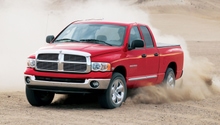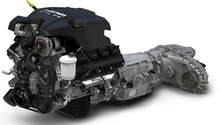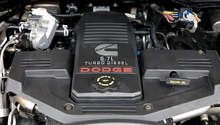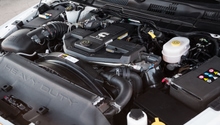Dodge Ram 2009-Present: Engine Noise Diagnostic Guide
Grinding, rattling, and knocking noises signify a serious engine issue. Before you do any more damage, take the time to read through this.
This article applies to the 4th Generation Dodge Ram (2009-Present).
When you think about engine noise, things like the throaty induction noise or a roaring exhaust come to mind, and not terrible noises like pinging, grinding, or detonating noises. However, these are sounds that can emanate from deep within your ride. A ounce of prevention is worth a pound of cure, so learn what noises to look out for and what they mean. You'll be able to detect an issue before it turns into a problem.

Material Needed
- N/A
Step 1 – MDS (cylinder deactivation) noises
2009+ Dodge Rams with the Hemi engine can be equipped with what is called "MDS," or multi-displacement system. MDS is Chrysler parlance for cylinder deactivation, which refers to the vehicle's ability to go from running on all eight cylinders, to running on four during periods of low-load operation (read: highway use) for improved fuel economy.
This causes two potential issues. One is that by running an engine designed chiefly as a V8 to run in "V4 mode," there is an inherent imbalance in the firing order. V4 engines are naturally unbalanced, and tend to rumble around a lot. Think about that one annoying neighbor who revs up their Harley-Davidson at 5 a.m. for no obvious reason. That's a V4, which makes a racket and likes to shake itself (and their riders) to death. That imbalance, besides additional vibrations, causes a very unusual sound to emanate from your normally V8 rumbling Hemi. It should also be noted that if you're driving along with MDS activated, and decide to hammer down on the throttle, that the engine cannot immediately return to firing on all eight cylinders. This is a common source of ire in the Ram community, as this secondary performance void makes the truck feel and perform like it's being choked.
The second issue is again one involving NVH (Noise, Vibration, and Harshness) calibrations. The engineers at Dodge engineered the acoustics in the Ram to mitigate a lot of the unpleasant noises associated with a moving vehicle. With that said, there are limits as to how wide of a range of acoustics can be tuned. In short, your truck runs and feels much smoother when all eight are firing, rather than four. Forum users have complained about vibrating, or unusual exhaust sounds. The exhaust piping was tuned with the V8 in mind, and sometimes, that can have unsatisfying acoustics as a result. Again, some members on the forum have advised on contacting your dealer if MDS harmonic issues occur, as they can often repair any issues.
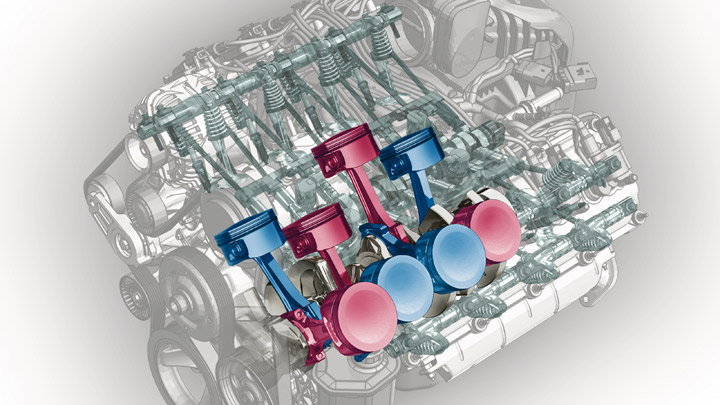
If your sure that it's not an MDS issue or if your truck doesn't even have MDS, let's move on.
Step 2 – Collapsed lifters
Excessive engine ticking noises could indicate an issue.
Several members of the forums have indicated an issue with defective lifters in the cylinders head of their Hemi engines. The lifters roll along the camshafts and control the opening and closing of the valves. When the lifters have worn excessively, the rollers don't glide as smoothly against the cam, and it affects the motion of the actuating rod, causing noise, and oil consumption. If left to wear, it will eventually damage the camshaft and require an extensive engine rebuild.

Figure 2. Hemi valve lifters. 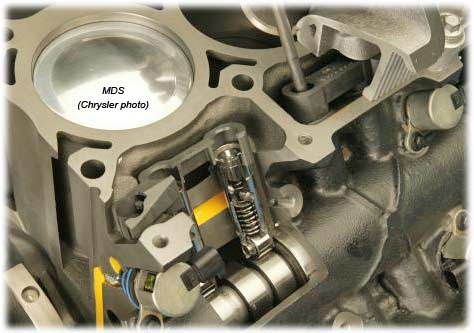
Figure 3. Hemi engine cutaway showing lifter rolling on camshaft.
This is a difficult issue to diagnose, and requires an engine tear down to fully access. Indications that you have a collapsed or damaged lifter would be an increasingly noisy valvetrain and oil consumption. If a lifter has failed, the following things should be thoroughly inspected, and likely replaced: all 16 lifters (one per valve), camshaft, head gaskets, and exhaust gaskets. This repair has been quoted in excess of $2,000 from a Dodge dealership.
If your truck doesn't have excessive oil consumption or an idling issue, move on.
Step 3 – Engine knock
Your truck may be experiencing misfires, or pinging under load.
Engine knock ("ping") is exactly what it sounds like. If you hammer down the throttle and the truck bucks, surges, and pulls power, sometimes producing an audible "pinging" noise, you've just experienced engine knock.
Some minor amount of engine knock (detonation) is considered fine under normal operating conditions; however, if the truck is audibly misfiring or pinging, you've got an issue. The 5.7L Hemi should be on a steady diet of 89 octane fuel, as per Dodge. Put simply, the higher the octane rating, the greater resist to detonating. So if you're hearing or feeling pinging, bump up your octane level on your next fill up and see if the issue persists. Dodge's recommendation for 89 octane is intended to cover many different uses of the truck, predominantly focusing on daily driving. If your truck is seeing heavy payloads or is used for frequent towing, then you should consider bumping up to 91 octane to better resist engine knock caused by the extra load on the motor.
Alternatively, if you're experiencing pinging or hesitation even in every day driving, the cause is usually the same thing: your spark plugs. The Hemi seems to be a bit touchy when it comes to plugs, and does not respond well to ignored maintenance. Chrysler-Dodge specifies copper spark plugs as OEM equipment. These plugs tend to have a shorter lifespan than a comparable iridium plug. Given that the Hemi uses two plugs per cylinder, people like to be proactive and replace their 16 plugs with longer lasting iridium plugs. Some people go on to report issue-free use, but others aren't so fortunate. Plan on changing your copper plugs every 25,000 miles for best results.

Step 4 – Exhaust manifold bolts/leaking headers
The exhaust manifold bolts may be broken.
Certain 2008+ Dodge Rams with the 5.7 Hemi have reported issues with the bolts securing the exhaust manifold to the engine breaking. This creates a noticeable exhaust leak, increasing exhaust volume. Initially, this just causes additional, unwarranted exhaust noise, but eventually, the leak will further degrade and cause issues down the road.
The repair is simply to replace the exhaust manifold bolts and manifold gaskets. Forum members have indicated that Chrylser is aware of the issue, and has updated bolts to prevent the issue from occurring again.
(Related Article: Exhaust Manifold Bolt Issue - DodgeForum.com)
Related Discussions
- Weird Engine Noise - DodgeForum.com
- Engine Noise, Collapsed Lifters - DodgeForum.com
- Noisy Lifters - DodgeForum.com
- Engine Knock, Embarrassing - DodgeForum.com
- Broken Exhaust Manifold Bolts - DodgeForum.com
- Partial Throttle Rattling - DodgeForum.com



